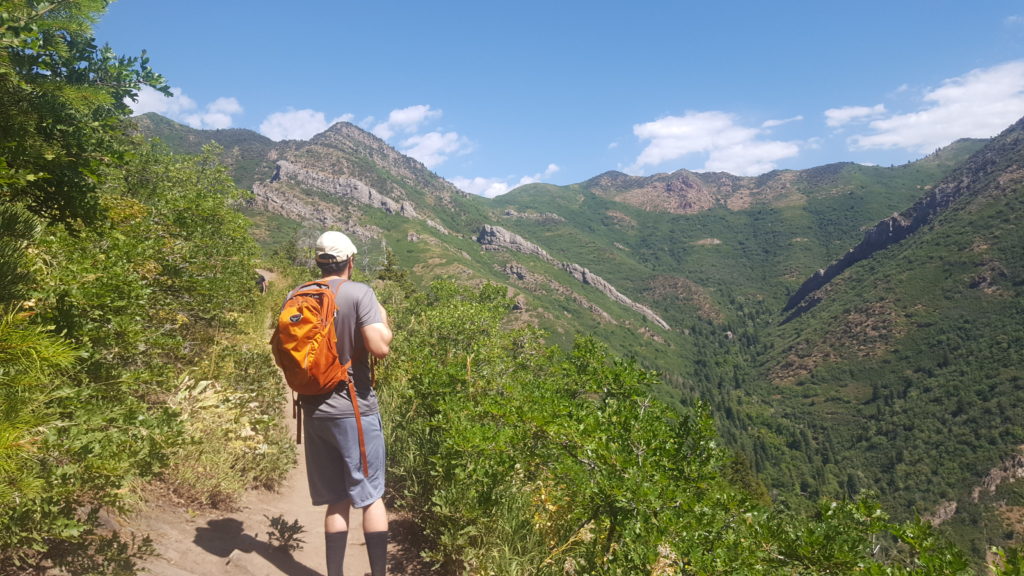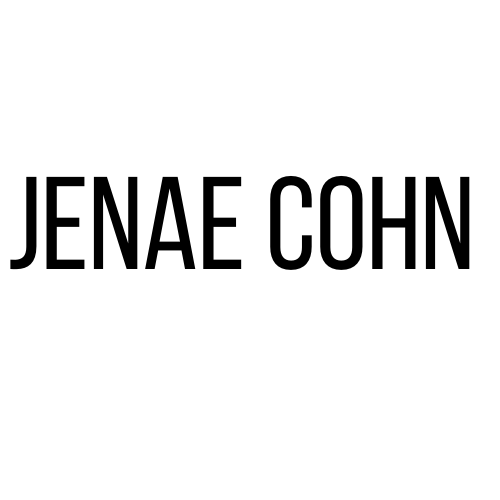It’s my last Saturday here in SLC, and it’s starting to hit me how fast the last week here is going to feel! I took another day off here, especially since my husband is in town visiting, and wound up making a very full day out of a long hike up in the Wasatch Mountains, a lunch of a giant doner kebab wrap in the Sugarhouse neighborhood, and a dip in the hotel pool as a way to cool down from adventuring in extremely hot and dry weather! (Our rental car showed the outside temperature at 102 degrees!)

Kevin looks out over the great expanse of the Wasatch mountains on a hike along the Desolation Trail.
I’m not going to start reflecting too much on the end of the institute here (there is still one more week to go and a lot of good reflecting to come!), but what I got to thinking about today, climbing up into the mountains and exploring a new neighborhood, was the joy in gathering new experiences. Kevin asked me at what point today if I like to travel because I like the sensation of a new experience or if I like “collecting” experiences, building up a catalog of moments to savor in my memory later. This question struck me as particularly interesting (for yes, wait for it) reading because I think this divide could be applied for people who self-identify as readers: do we read new books to experience the sensation of reading or do we simply enjoy “collecting” books for the sake of knowing that we’ve read a lot of things?
For me, in terms of both travel and reading, I’d say it’s some combination of both. As someone who does, indeed, self-identify as a reader, I know there is not quite any feeling like digging into a book. Sure, I like the sensation of “getting lost” in good fiction, but even beyond that, I love the feeling of digging into good ideas, of seeing someone work through an argument and tell me the stories to follow along with that argument successfully. I love experiencing how someone walks me through their world and getting even just a little window of access into someone else’s way of thinking.
On the other hand, I take pride in the act of collecting books, of seeing my bookshelf filled with the experiences I have taken the time to collect and appreciate. For my graduate school preliminary exams (some PhD programs refer to these as “comps”), I had to work through a reading list of over one-hundred books, and while reading through, taking LOTS of notes on those books, and surviving an oral exam on them was not fun at all, knowing that I had read all of those things, that I could point you to that list and tell you that I could say something significant about each of them feels – well – good. I sometimes feel a little silly for admitting to that (who cares that I’ve read a lot of obscure media theory or that I muscled my way through Gravity’s Rainbow?), but I think I see now that part of the pride and pleasure comes from the fact that I collected all of those experiences, all bundled up. Part of being able to point to a body of knowledge involves being able to apply that body of knowledge too, to be able to claim some small bit of expertise.
Of course, I don’t become a travel expert simply by visiting a lot of places; I become a travel expert when I’ve accumulated the knowledge and skills not only to get myself to different places, but to find extraordinary things to do, unique places to dine, or hidden gems of scenery or architecture. Similarly, I don’t become a reader simply by owning books; I become a reader by understanding what I have in my collection and of understanding why I enjoy reading what I own (or have borrowed in the past).
Looking at the comparison between travel and reading in this way, it is obvious that in some ways it is impossible to divorce the sensations from the collections. But I think that being able to pinpoint what you prioritize in terms of how you spend your time or what part of your time in a particular experience is most meaningful to you is important. Indeed, in this post, I’ve been treating both travel and reading as monolithic entities, and both experiences have tons of variation that people will prioritize and categorize in different sets of ways. The stakes of understanding the diversity around reading experiences are, I think, a bit higher than the stakes of understanding the diversity of travel experiences because reading experiences are enveloped in political, civic, and intellectual participation. The more that we can recognize the fact that individuals will find different entry points in and expectations of reading, the better off I think we’ll be in defining literacy in capacious and inclusive ways.
Broad thoughts today, but ones inspired by the grandeur of the Wasatach mountains and knowing that the best experiences we have may be ephemeral. Hence, the recordings here, to memorialize both the travel experiences and the reading experiences that have been so critical to my time at this institute!
